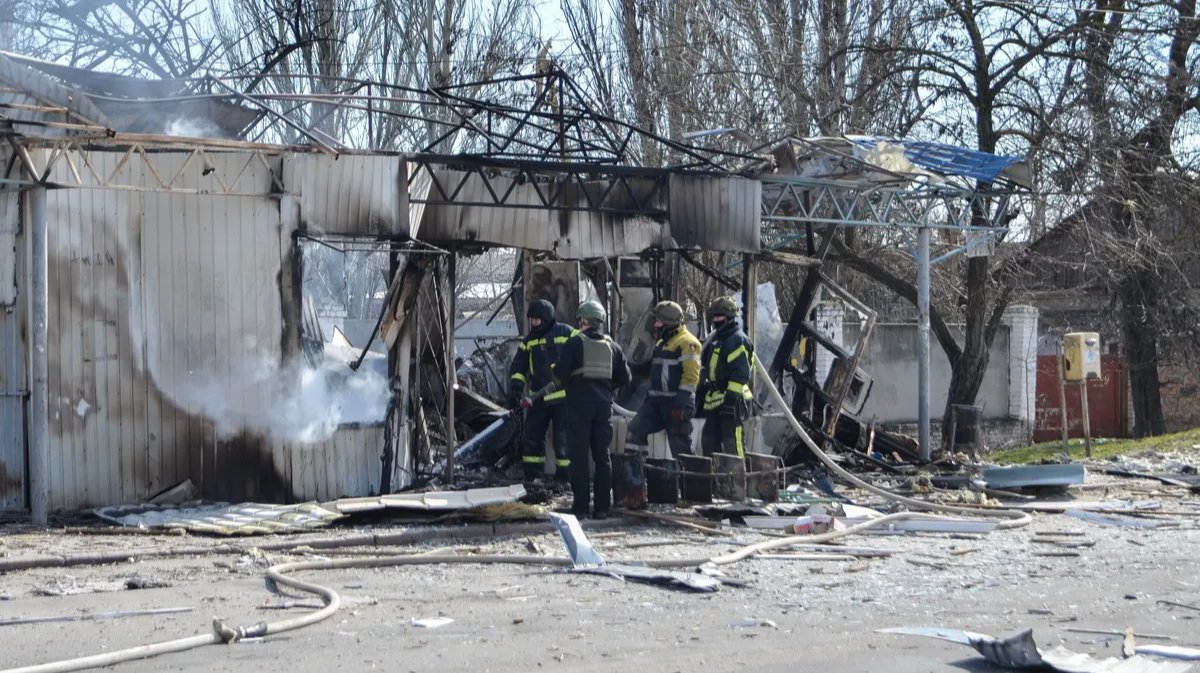‘I sit in the corridor and I can hear glass shattering’
Vera, 79, teacher. Kherson (liberated by Ukraine)
It’s very difficult speaking with Vera; she can’t stop crying. Explosions keep going off in the background. Every new hit makes the walls of her flat tremble — my interlocutor gasps, stops talking for a second, and then starts crying again. After suffering a stroke, she can’t go outside. Since autumn, when fleeing Russian soldiers blew up all electrical transformer substations, the lift in her building hasn’t worked. Which is why she hasn’t been outside once since the liberation of Kherson; she looks at the city from her window.
Several people were killed at the bus stop near my building. Poor people! To survive the occupation and then be killed by a shell. The little shop I was buying my groceries at last autumn was blown to pieces. I don’t know how this will end but I’m very scared. The explosions have never been this close to my building before. I sit in the corridor and I can hear glass shattering. My windows rattle, but the duct tape is still protecting the glass, they’re good for now. Almost all of my neighbours’ windows are gone, but mine are still holding on.
There are only three people left in our five-storey building. One neighbour recently visited me; he works in a hospital, he has moved to the centre of the city, to his relatives’ place. He moved all of his loved ones to the safer regions of Ukraine, but he himself stayed to work here.
He says that injured soldiers come in all the time, our boys; there’s heavy fighting for the Kinburn Spit going on. God, how many more young men have to die in this terrible war?!
Today, a shell hit a gas pipe. Now there’s no gas in my flat, but fortunately, the power is still on. My friend [from another area of Kherson] called, they got cut off from both, power too.
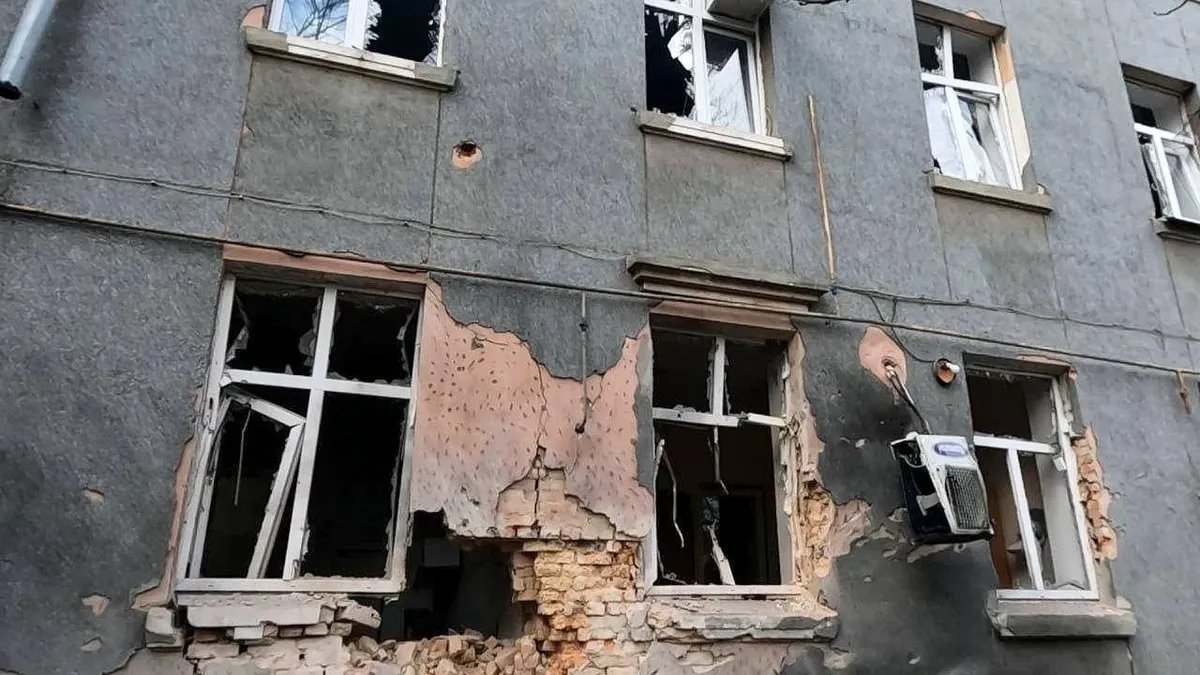
Kherson. Photo: social media
Since morning, they’ve been shelling the centre, destroying historic buildings. Of course, I understand that our main task is to survive; we will rebuild the city. But it still hurts so much. I was born in 1943 in a village in the Mykolaiv region. My pregnant mum fled from fascists in Kherson, she didn’t even recall the name of the village where she suddenly went into labour, she was in so much stress. She had to continue on with me in her arms. We came back to Kherson in 1944 after it had been liberated from fascists. Mum was convinced that only one war falls on a generation, so she constantly told me: “Vera, I’m not worried about you. You’ve survived your war and you won’t have to face another one.”
‘I hate them even though we speak the same language’
Nadezhda, 62, retired. Kardashynka, 11 km away from Kherson across the river. Occupied by the Russian forces
There’s almost no one left in the village. Russian soldiers are stationed by the lake and in the woods. Every day I hear and see them shoot. Sometimes in the direction of Kherson and Oleshky. Then they roll out their artillery and begin firing at Hola Prystan, which is occupied by them. And then they show various videos of Ukraine’s forces shelling Hola Prystan and Oleshky on their propaganda channels. But people see everything. [A shell] flies off — a few seconds pass — and an explosion in Hola Prystan. The roof of my house actually jumps up…
My daughter and disabled grandson left for Kherson in November, to the hospital. Then the city was liberated, and we remained on different sides of Dnipro.
When they were leaving, I gave them my bank card, where my Ukrainian pension gets transferred. I was left with no money, but at least I wasn’t worried about them having nothing to eat.
I’m very sick, there’s no medication here. I’ve run out of food too. I was farming before, but now there aren’t even chickens left. I’d very much like to eat some fried meat or meat broth… Any broth, if only I could eat my fill. You can’t imagine how thin I’ve gotten, there’s almost nothing left of me. I called my friend, and we spent our entire conversation talking about the meals we used to cook before the war. We cry and then laugh at ourselves. God, we led such good lives before the Russians came…
And I’m Russian by nationality, I was born in the Belgorod region. An acquaintance we were friends with for many years called me some time ago. He was one of the first people here to receive Russian citizenship, now he gets two pensions — from Ukraine and Russia, he’s very happy about it. He says that Russian soldiers are very polite and nice people, even though they broke the main door of his house while he was on a trip to the hospital in Skadovsk. They didn’t manage to steal anything, because my acquaintance came back home in time. He says, how can you hate them when you’re Russian yourself? But I hate them even though we speak the same language.
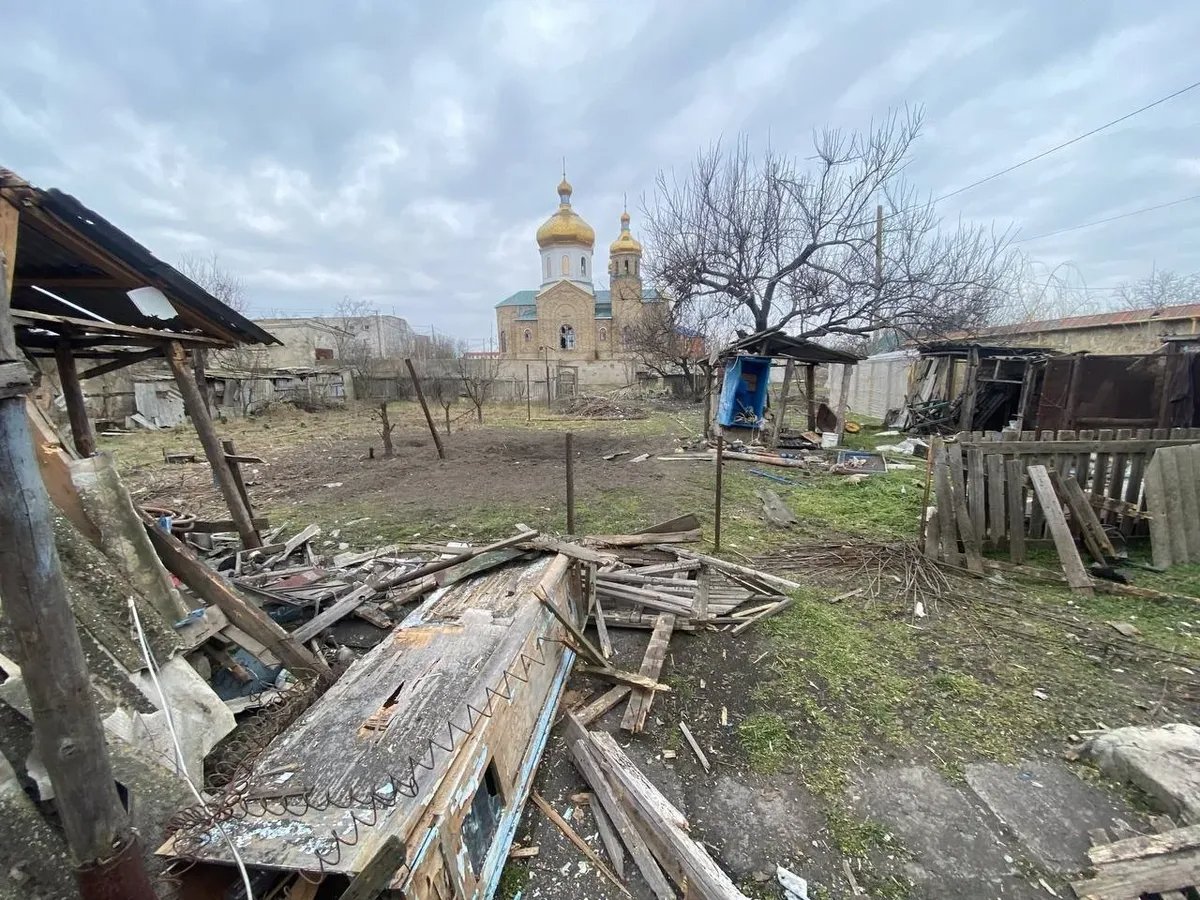
Hola Prystan. Photo: social media
I decided not to take the pension from Russia, even though I was offered to apply for a passport and start receiving all the handouts. One time, when it got unbearable, I accepted 10,000 rubles (€120) and a bag of grain. I was disgusted at my own weakness for a long time. But my neighbour bought me vegetable oil with that money. She’s younger than me, still has her strength, she went to a market in Hola Prystan. Our locals go there by foot, there are basically no cars left in the village. The occupiers robbed most of the houses, they took the cars and anything of value.
For several months now, the grain and a little bit of oil — that’s my whole diet. I’m using my oil very sparingly. But thank God, spring is here. I pick up nettles — now there are some vitamins in my usual porridge. It’s scary that my life today is the same as what my parents told me about the fascist occupation. But that war ended, and this one will too.
‘They’re not very keen on accepting occupation survivors into the army’
Volodymyr, 38, businessman. Kherson (liberated by Ukraine)
My enterprise burnt down after a shelling. I can’t and, probably, no longer want to relaunch it. What’s the point? Even if I were to purchase all the materials again and assemble the machines from what’s on hand, a shell can fall on it again. Basically, while we’re being shelled from all kinds of weapons daily, I can’t help my employees in any way. I’m also earning money through whatever comes my way. I will fix one guy’s TV, another’s washing machine. It’s enough to feed the family, but without any indulgences.
Last week, I went to Odesa to find a job. The moment I got off the bus, walked a little down the street, I was stopped by a military patrol with police. They checked my documents. I lived in the occupied Kherson for almost a year, and my last name is Russian — Sidorov. I was instantly brought in for a talk to the police station. There I was offered to take a lie detector test. I agreed. The interrogation went fine. It was, not going to lie, unpleasant, but what can one do. I understand their position too; heck knows what I, with my Russian last name, was doing the entire time the city was occupied.
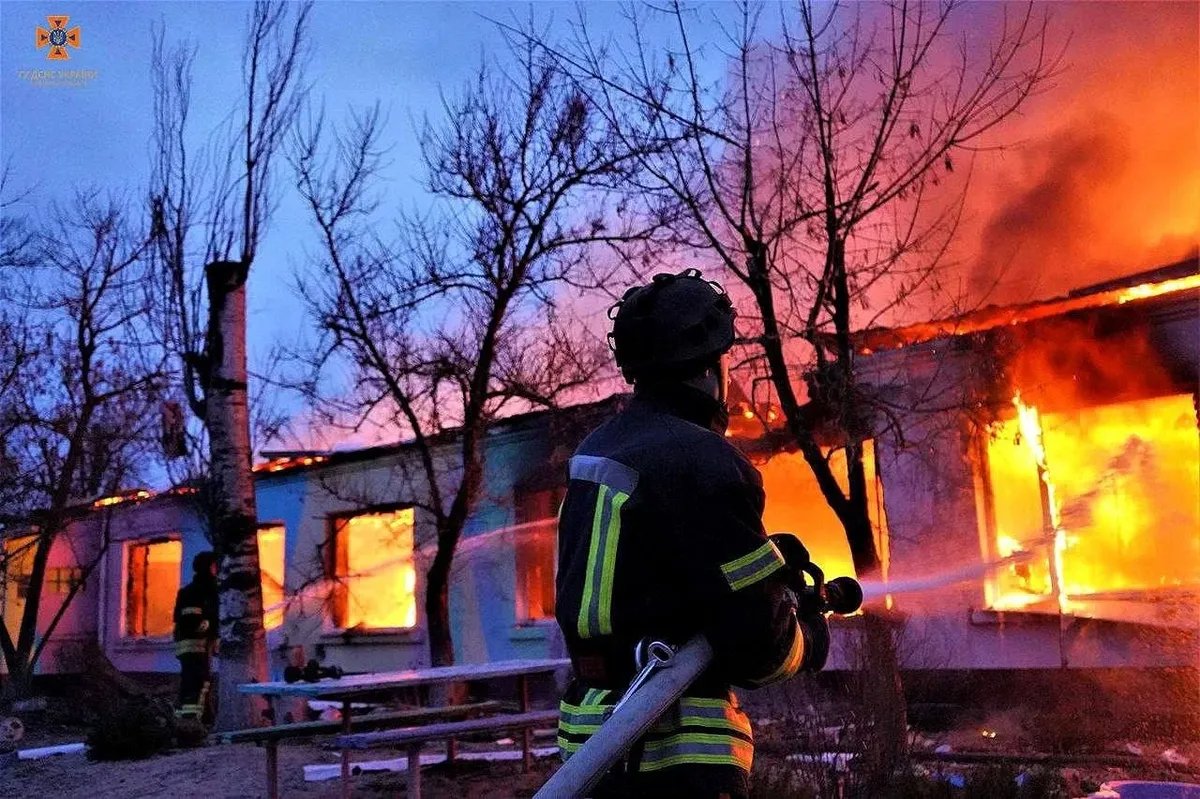
Kherson. Photo: the State Emergency Service of Ukraine
They said I needed to go home and register at a draft office. I saw online that many men are being taken in the streets and sent to the army immediately. I was scared that something like that would happen, but not because I’m scared of ending up in the army, I’m scared of ending up there without any training. I never served. At first, I was studying at one university, then another, then I got married, then I had kids, and then I was no longer of the conscription age. I never had any use for my military ID before the war, seeing as I was my own employer.
My acquaintance, who served in the Anti-Terrorist Operation Zone [the 2014-2015 operation in Donbas — translator’s note], also spent all of the occupation in Kherson. He was taken to the “basement” twice, he was black from all the beatings and fractures, got twice as thin. Now, he’s more or less recovered; he wanted to join the Armed Forces, but they didn’t accept him, even though his combat experience stretches to 2014. And he wasn’t the only one. They said to just register [with a draft office] and wait. As far as I understood, they’re not very keen on accepting occupation survivors into the army and giving us weapons — they’re worried about traitors.
‘Denis Russkikh was killed by Russians’
Natasha, 44, unemployed. Hola Prystan (occupied by the Russian forces)
We’re under fire every day. Yesterday, an old creamery was hit in the centre of the city. Three locals were injured, they live in a private area nearby. The rumour is that a music school got damaged too, but I haven’t seen for myself, I try not to go to the centre, the Russians dug up trenches all over it. The Z-channels always show montages of our collaborators complaining that Ukraine is shelling Hola Prystan. But we can hear that they’re the ones to shell us: [a shell] goes off and immediately lands here. I don’t know for whom they’re making their reports. Probably, for the Russian audience, they will believe anything.
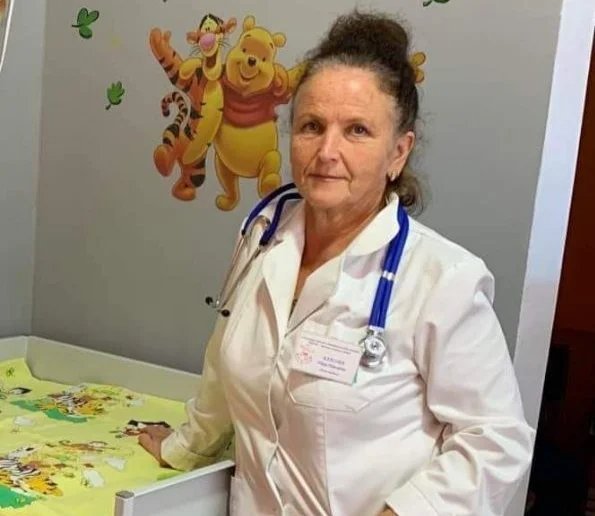
Nina Vlasova. Photo from a personal archive
On 6 March, shrapnel from an exploded shell killed Nina Vlasova, who worked as a paediatrician her entire life, everyone in the city knew her. She treated more than one generation of locals. It’s a very big tragedy for our city, because she was with us the entire war and continued treating our children. Her children and their families left the city a long time ago, so they didn’t even get to say goodbye to their mum at the funeral.
Two days before her death, a shell hit the country houses located near river Chaika.
My friend was there at the time — Denis Russkikh. He was killed. What a mockery of one’s fate — Denis Russkikh was killed by Russians.
But I, of course, don’t find it funny. I can’t wrap my head around the fact that he’s no longer here. We were friends from childhood, we spent our teenage years together in rock circles. He was an amazingly kind and harmless man. He wrote weird poems and painted pictures, created unusual things from material at hand. Denis never despaired, never took offence, he knew how to help someone with a kind word. For many of us, he was the symbol of the city. Our friends were leaving, knowing for certain that when they came back Denis would be waiting for them, with his weird jokes, stupid poems, and sincere laughter. He was the symbol of loving life to us, and now he’s gone.
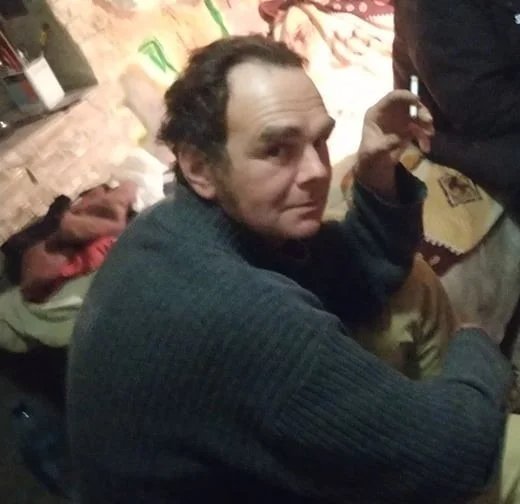
Denis Russkikh. Photo from a personal archive
‘One hope remains: Ukraine will finally stop shelling us’
Iryna, 53, unemployed. Hola Prystan — Skadovsk (occupied by the Russian forces)
Almost nothing changed in our lives in the past month. We’re still renting a place in Skadovsk. My house in Hola Prystan was blown up during another shelling. I’m tired of Ukraine’s forces, how long can they keep shelling our houses? I took the children to my relatives in Russia so they could go to school there. I stayed here to take care of my elderly mother.
Sometimes we take walks near the sea, breathing in the sea air, restoring our health. My husband stood in a queue for a long time, trying to buy tulips for 8 March. One rose cost 260 rubles (€3), a tulip 120 rubles (€1.5). I saw him and started laughing: stop queueing for flowers, better buy me a chocolate bar. Sometimes I really want to taste something sweet, although I don’t like chocolate very much. My husband gets two pensions, but it’s better to save money instead of spending it on tulips. The prices are awful.
But in general, life is beautiful, the sun is getting warmer and warmer, and flowers have started blooming outside. I look at them and I’m happy. Everything’s okay. One hope remains: Ukraine will finally stop shelling us, and we will begin living peacefully.
Join us in rebuilding Novaya Gazeta Europe
The Russian government has banned independent media. We were forced to leave our country in order to keep doing our job, telling our readers about what is going on Russia, Ukraine and Europe.
We will continue fighting against warfare and dictatorship. We believe that freedom of speech is the most efficient antidote against tyranny. Support us financially to help us fight for peace and freedom.
By clicking the Support button, you agree to the processing of your personal data.
To cancel a regular donation, please write to [email protected]
